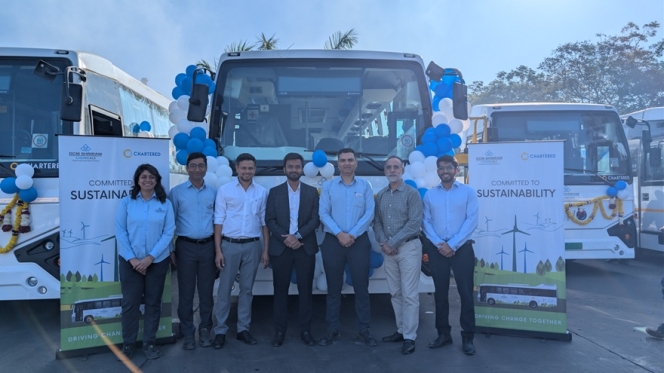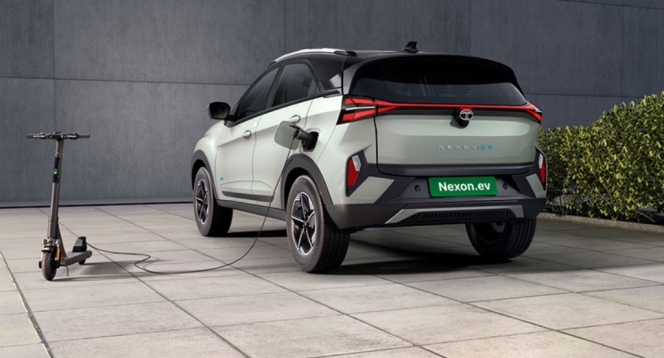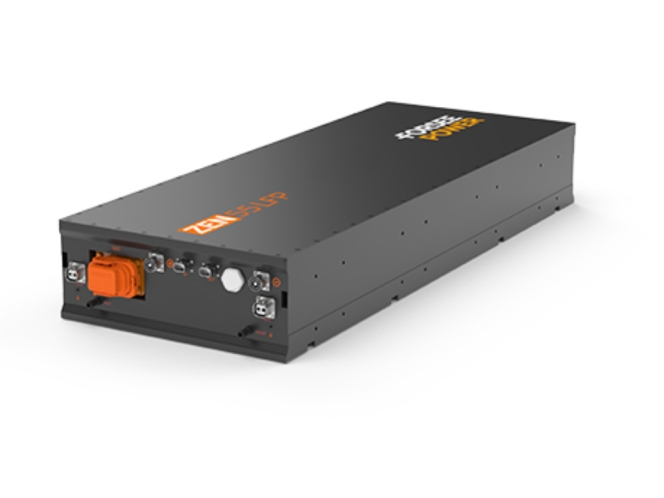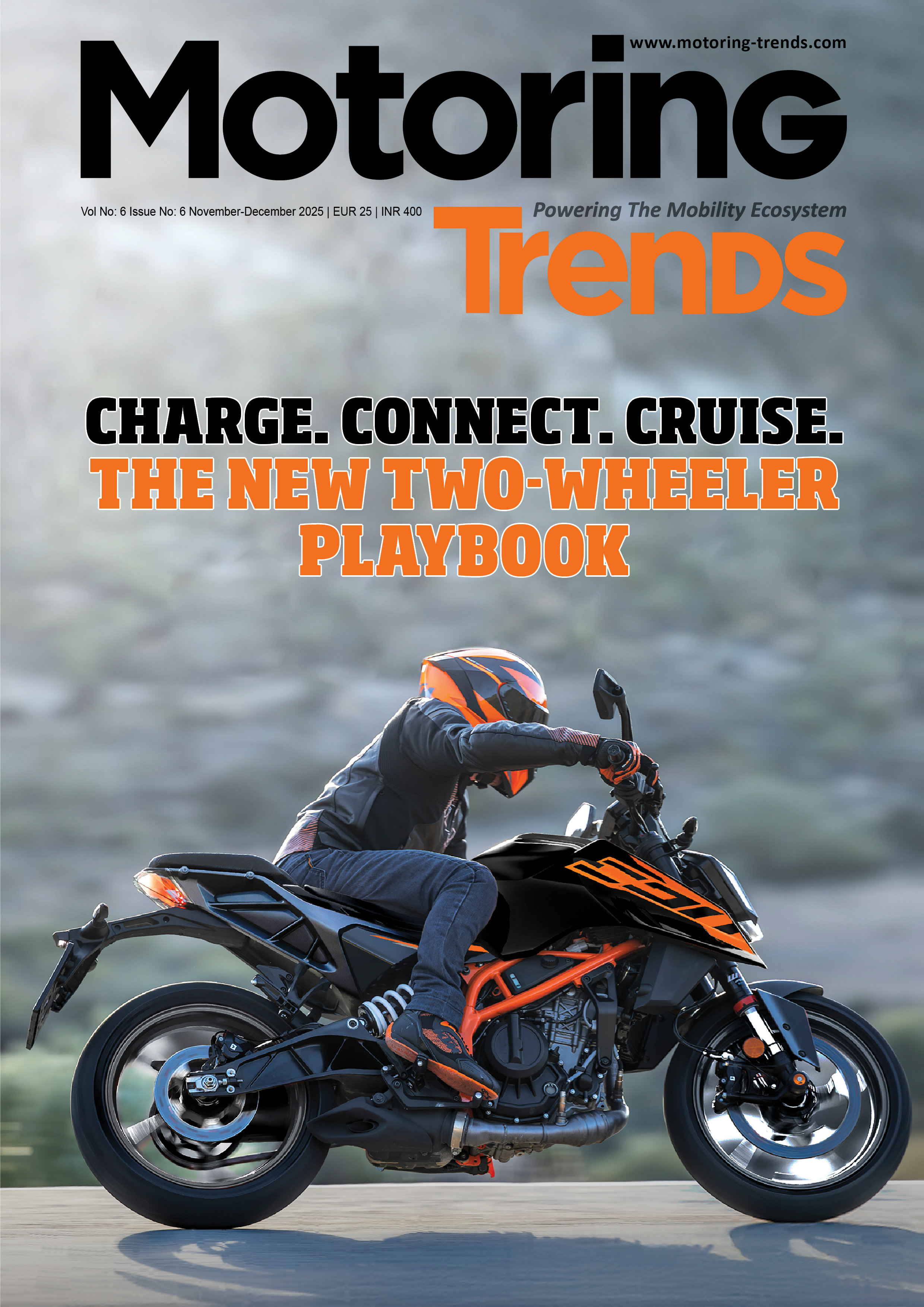Gogoro’s First Impact Report Is Out; highlights benefits of battery swap
- By Bhushan Mhapralkar
- February 20, 2023

As India pursues a goal to drastically reduce greenhouse gases through efforts like a shift to zero carbon emission vehicles that also lead to the elimination of dependence on imported fuels, even imported battery cells, the first impact report of Taiwan-based Gogoro is out. It outlines some very interesting and important factors on battery electric two-wheelers and battery swapping technology, stopping short of how green electricity could be harness over a grey source to ensure a greener well to wheel journey.
Highlighting Gogoro's progress in sustainability and ESG, the first impact report categorically outlines how its swapping and smart scooters have been successful in enabling a transformation to sustainable urban transportation. The company's Founder and CEO Horace Luke mentions that ten years ago few were contemplating the urban energy and transportation transformation necessary to address in the wake of the plight cities were facing because of air pollution and other negative effects of climate change. Our first impact report highlights this and the progress we have made in our ESG initiatives, in-turn outlining our future intentions, he adds.
Drawing attention how the report summarises his company’s commitments and progress in four key strategic areas of cleaner planet, safety and resilience, responsible business and social impact, Luke avers that these four areas are key to our success in achieving smarter, cleaner and safer cities.
With nearly two million customers and 400 million battery swaps to date, Gogoro has established an open 360-degree ecosystem, which is AI-powered and cloud-connected to deliver the most accessible urban energy solution. The system is constantly learning, adjusting and optimising smart batteries and swapping stations to enable a variety of smart city solutions.
Stating how the battery swap technology and smart scooters have made a positive impact with the help of key statistical data in terms of fossil fuel consumption reduction, CO2 emissions reduction, particulate emission reduction and employment generation, the first impact report also highlights how cities in Asia and Africa, where two-wheelers are used for daily commutes, are benefitting. With the battery swapping system paid particular attention to because it allows users to refuel their electric scooters quickly and easily, the first impact report states that the system or technology creates the potential to integrate renewable power into electricity grids through virtual power plants and demand response programmes.
In 2022, Gogoro began purchasing renewable energy in Taiwan to further reduce the amount of scope 2 emissions caused by its manufacturing, retail operations and battery swapping service, according to the first impact report. With a long-term goal of achieving 100 percent renewable energy, in 2022, it achieved 40 percent renewable energy in its factory operations and at two retail stores.
Gogoro And Hero Group
Hero MotoCorp, which began deliveries of its first Vida V1 electric scooter in select cities in India starting with Bengaluru, announced in 2021 that it has entered into a strategic partnership with Gogoro to establish a battery swapping JV that will bring the Taiwanese company's industry leading battery swapping platform to the Indian market. The Indian two-wheeler major also announced that the two companies will collaborate to build electric two-wheelers in India that are branded as Hero and powered by Gogoro network.
Drawing attention to Gogoro's hyper-efficient battery swapping network receiving the 2020 Frost & Sullivan Company of the Year award for the Global Swappable Battery Electric Scooter Market, sources aware of the development mentioned that Hero MotoCorp would benefit from Gogoro's knowledge and experience to drive a beneficial arrangement in the electric two-wheeler market that is also being encouraged by the government. Citing that there are hurdles like an electric two-wheeler attracting 5 percent GST and a battery attracting 18 percent GST, they added that these are being followed up on and would soon hopefully be sorted.
Encouraging battery swap with a favourable policy structure
While Gogoro may be keen to carve out a good pie of the Indian market with its intelligent battery swapping technology, India's homegrown company, Sun Mobility, may not be any less in its ability to deliver on the same front. At Auto Expo 2023, it showcased an AI enabled smart battery swapping system and smart battery packs in line with the government's encouragement to develop an efficient EV ecosystem and bring about a shift to lower the CO2 emissions that Indian cities seem to battle with. Cities like Mumbai, which have until now not figured among the top polluted cities in the world, seem to be getting there with high particulate, NOx and CO2 emissions.
While the high amount of construction activity and a change in wind currents may be the contributing factor, the fact that the number of two-wheelers in the megacity have risen in the last one or two decades is an indication that a transition to EVs will contribute to lowering of emission levels to an extent. An ability to generate electricity needed to fuel these many numbers of electric two-wheelers would also need to come from a greener source rather than from lignite burning thermal plants that would mean a mere shift of pollution from cities to rural areas where most thermal plants are.
Gogoro partnership with Maharashtra Government
The Indian State of Maharashtra announced a strategic energy partnership with Gogoro Inc. and Belrise Industries (erstwhile known as Badve Engineering Ltd) to establish an unprecedented battery-swapping infrastructure in January 2023. The two companies in association to the respective state government plan to build a smart energy infrastructure that is open and accessible and establishes battery swapping and smart battery stations as a leading source for mobility and energy storage. The deployment is also expected to accelerate job growth throughout the smart energy, electric vehicle and sustainability value chain. It is expected to foster smart electric vehicle manufacturing and assembly too.
Chartered Speed Deploys Electric Buses For DCM Shriram Staff Transport
- By MT Bureau
- December 24, 2025

Chartered Speed has deployed 11 electric buses for staff transportation for DCM Shriram at Jhagadia GIDC, Bharuch. The service was inaugurated by Sanyam Gandhi, Whole-time Director at Chartered Speed and Aditya Shriram, Deputy Managing Director at DCM Shriram.
The deployment is part of an effort to shift employee mobility towards electrification. Chartered Speed operates a fleet of over 2,000 buses across six states, serving 350,000 passengers daily.
The electric buses are equipped with several technologies for fleet management and passenger safety. It comes with real-time GPS tracking and onboard Driver Monitoring Systems (DMS). CCTV cameras, fire protection systems and first-aid kits are installed in every vehicle.
The company currently provides school and staff transportation services to various clients, including GHCL Limited and Apple Global School.
Sanyam Gandhi, Whole-time Director, Chartered Speed, said, “With the recent deployment of electric buses, we are strengthening our commitment to reducing the carbon footprint of our operations and supporting the transition to greener transportation solutions. Our vision is of building a large, clean energy-powered fleet that aligns with global trends towards electrification in public transport. We remain focused on integrating technology in our services not only enhances operational efficiency but also fosters a culture of safety that we believe is essential for the future of transportation.”
- Tata Motors
- TATA.ev
- Nexon.ev
- Tiago.ev
- Curvv.ev
- Harrier.ev
- XPRES-T EV
- Shailesh Chandra
- Sierra.ev
- Punch.ev
- Avinya
- Agratas
Tata Motors Surpasses 250,000 EV Sales In India
- By MT Bureau
- December 23, 2025

Tata Motors, one of the leading passenger vehicle manufacturers in the country, has attained a new milestone in the Indian electric vehicle (EV) market, with cumulative sales of its TATA.ev range exceeding 250,000 units.
Since the launch of the Nexon.ev in 2020, the company has secured a 66 percent market share of all electric passenger vehicles sold in India to date. The Nexon.ev has become the first electric model in the country to surpass 100,000 cumulative sales.
At present, the company’s green vehicle offering includes the Tiago.ev, Punch.ev, Nexon.ev, Curvv.ev and Harrier.ev for personal use, alongside the XPRES-T EV for fleet operations.
To support its EV customers, Tata Motors has established an ecosystem, which includes access to over 200,000 charging points, including home, community and public chargers. A digital platform providing coverage for over 20,000 public chargers. Around 100 mega charging hubs operational across key corridors, offering speeds of more than 120kW. Approximately 1,500 dedicated EV service bays nationwide, staffed by over 5,000 technicians.
The automaker stated that every TATA.ev vehicle is manufactured with more than 50 percent local content. In collaboration with other Tata Group companies, the firm has localised the production of battery packs and battery management systems. The supply chain also includes domestic production of power electronics, wiring harnesses and thermal management systems.
Going forward, Tata Motors has outlined a robust growth strategy through to 2030:
- Upcoming Launches: The Sierra.ev and a new Punch.ev are scheduled for release in CY26, followed by the Avinya luxury range at the end of 2026.
- Portfolio Growth: Five new nameplates are planned by FY2030.
- Infrastructure Targets: The company aims for 400,000 charge points by CY2027 and 1 million by 2030.
- Battery Sourcing: Future models will use battery cells produced at the Agratas gigafactory in Sanand.
Shailesh Chandra, MD & CEO, Tata Motors Passenger Vehicles, said, “Crossing 250,000 EV sales reflects how electric mobility is fast becoming part of everyday Indian life. Our customers are driving more, travelling farther, and increasingly trusting EVs as their only cars. Our EV journey which began in 2018, was never about leading alone but about building the ecosystem to enable India’s transition to clean mobility. This progress is the outcome of the government’s forward-thinking policies, the steadfast support of our supplier partners and charging infrastructure providers and above all, the trust and enthusiasm of TATA.ev customers. As EV adoption accelerates, our commitment remains clear: to mainstream electric mobility by making it accessible across segments, strengthening the ecosystem, and investing in India-first technology and localization. This is how we will continue to lead India’s growing EV market.”
The company also intends to focus on the circular economy by reusing batteries for energy storage and providing battery health checks for second-hand owners.
Forsee Power To Supply ZEN LFP Battery Systems To Mexico's MegaFlux
- By MT Bureau
- December 22, 2025

French-headquartered battery systems manufacturer Forsee Power has announced that MegaFlux, a Mexico-based powertrain integrator, has selected its ZEN LFP battery system for its heavy vehicle electric powertrains.
MegaFlux develops electric powertrains for trucks and buses, including retrofit solutions that convert diesel vehicles to electric. The company also provides charging infrastructure and energy management services.
The ZEN LFP product line uses lithium-ion LFP chemistry and is designed for buses, trucks and off-highway vehicles. The batteries are available in 36 kWh and 55 kWh formats, allowing for various voltage and energy combinations. The LFP battery has an energy density of 240 Wh/L. Being a modular system, upto to two modules can be stacked to optimise vehicle space. The battery has 6,000 charging lifecycle and is ISO 26262 ASIL-C and industry standards including R100-3 and R10.6 certified.
The use of LFP (Lithium Iron Phosphate) chemistry is intended to provide a lower Total Cost of Ownership (TCO) for operators due to its thermal stability and cycle life, factors that are relevant to the operating conditions in markets such as Mexico.
MegaFlux will integrate the ZEN LFP batteries into powertrains sold to original equipment manufacturers (OEMs) and into its vehicle conversion projects.
BYD Rolls Out 15 Millionth New Energy Vehicle As Global EV Sales Rise
- By MT Bureau
- December 19, 2025

Chinese automotive major BYD has celebrated the production of its 15 millionth new energy vehicle (NEV) at its Jinan Factory. The milestone vehicle is a Denza N8L, which also represents the 15,000th unit of this six-seat SUV model.
The company reported sales of 4.182 million units from January to November 2025, a YoY growth of 11.3 percent. Global markets contributed to this performance, with overseas sales reaching 917,000 units, surpassing the total volume recorded in 2024. BYD now operates in more than 119 countries and regions.
Technological innovation continues to drive the company's operations. In the first three quarters of 2025, R&D expenditure rose to CNY 43.75 billion, a 31 percent increase compared to the previous year. Total cumulative investment in research and development has now exceeded CNY 220 billion.
The Denza brand has entered markets in Singapore, Thailand and Malaysia. During the first half of the year, the Denza D9 became the top-selling luxury MPV in Indonesia, Thailand and Malaysia.
The brand has extended its presence into Europe and Latin America. This expansion is part of a strategy to increase the electrification of the global luxury automotive sector. Denza recently showcased the D9 at the São Paulo International Motor Show to support its growth in the region.






Comments (0)
ADD COMMENT